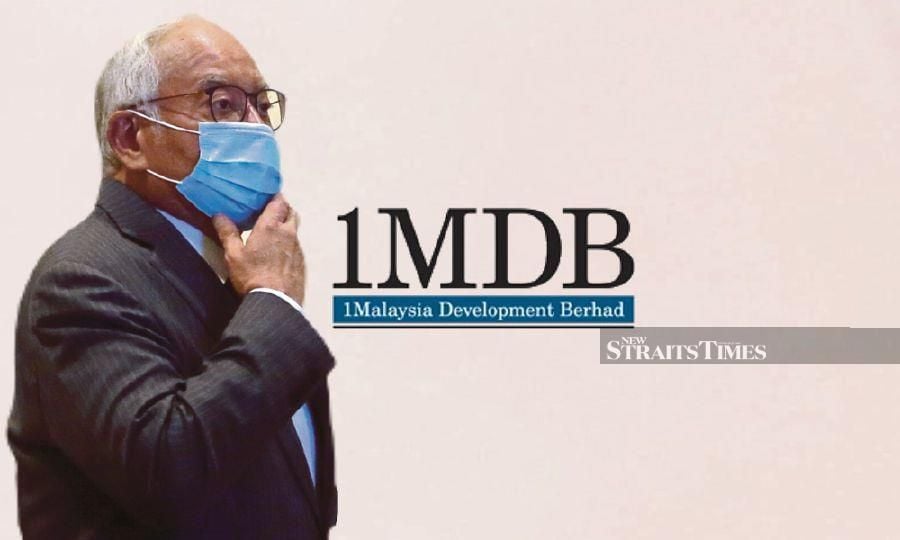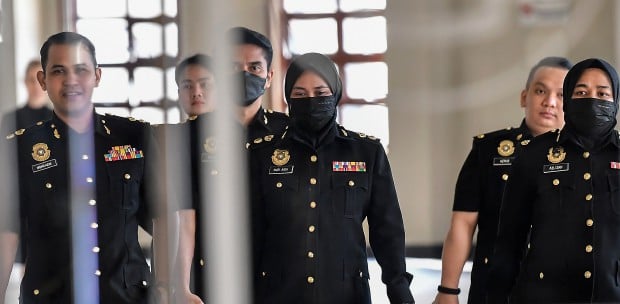Last week's news of a Mareva injunction against former prime minister Datuk Seri Najib Razak did not surprise many of my friends in the legal fraternity. They said it was a matter of time.
According to reports, 1Malaysia Development Bhd (1MDB) and its four subsidiaries had obtained an ex parte Mareva injunction from the High Court against Najib or his agents, freezing his assets in relation to their claim of US$681 million against the former prime minister and finance minister.
As a result, Najib is allowed to withdraw up to RM100,000 monthly from his bank accounts for his expenses. If he requires more than that, he has to apply to 1MDB's solicitors.
The goal of the Mareva injunction against Najib is to prevent the dissipation of the US$681 million claimed against Najib and several others.
A Mareva injunction freezes the assets of the person and prevents the transfer of such assets held in banks or financial institutions.
In May 2021, 1MDB and its subsidiaries (the plaintiffs) had filed a multi-billion dollar suit against Najib and other defendants who were former directors or board of advisers in the company.
The plaintiffs claimed that US$681 million was misappropriated and transferred to Najib's accounts.
We are informed that 1MDB director Mohd Hisyamuddin Awang Abu Bakar had affirmed an affidavit in support of the application for the injunction.
The application was heard by judicial commissioner Atan Mustaffa Yussof Ahmad, who later granted the relief sought by the applicants.
The court fixed Feb 21 to enable Najib to contest the ex parte injunction.
This means there will be an inter partes hearing, after which the court may decide (after listening to both) either to extend the Mareva injunction or set it aside.
The Mareva injunction derived its name from the case of Mareva Compania Naviera SA v International Bulkcarriers SA [1980] 1 All ER 213.
The plaintiffs in that case were the owners of a vessel, Mareva. It was let out under a charter party to the defendants.
The relationship ended badly for the parties.
In the ensuing hearing and appeal, the Court of Appeal was satisfied that there was a danger that the defendants may dispose of their assets, which would result in the shipowners not getting their charter hire.
Lord Denning MR held: "There is money in a bank in London which stands in the name of these charterers.
"The charterers have control of it. They may at any time dispose of it or remove it out of this country.
"If they do so, the shipowners may never get their charter hire.
"In the face of this danger, I think this court ought to grant an injunction to restrain the charterers from disposing of these moneys now in the bank in London until the trial or the judgment in this action."
In the ensuing years, the courts fine-tuned the requirements to be fulfilled for a Mareva injunction to be granted.
They are summarised as follows:
GOOD arguable case — The plaintiff must satisfy the court that he has a "good arguable case";
REAL risk of dissipation — The plaintiff must provide evidence to show that there is a real risk that the defendant would dissipate his assets with the intention of frustrating the enforcement of a prospective judgment; and,
JUST and convenient — The plaintiff must also satisfy the court that it is "just and convenient" to grant the injunction. The court must be satisfied that the likely effect of granting the injunction is to promote justice and not otherwise.
Malaysian courts granted Ma-reva injunctions since the early 1980s, including the notorious case of Bank Bumiputra Malaysia Bhd & Anor v Lorrain Osman & Ors [1985] 2 MLJ 236.
Legal commentator Loshini Ramarmuty described the Mareva injunction as akin to a nuclear weapon in law, citing the judgment of Donaldson LJ in Bank Mellat v Nikpour [1985] FSR 87, who said that the Mareva injunction is "one of the law's two nuclear weapons", the second weapon being the Anton Piller Order.
An Anton Piller Order is sometimes referred to as a civil search warrant allowing a plaintiff to enter the defendant's premises to search for, copy and retain for court proceedings incriminating evidence that may be destroyed.
The writer was a federal counsel at the Attorney-General's Chambers and visiting professor at Universiti Teknologi Malaysia. He is now a full-time consultant, trainer and author
The views expressed in this article are the author's own and do not necessarily reflect those of the New Straits Times






